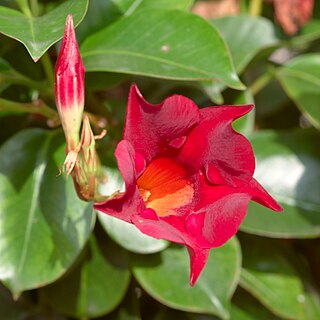
Mandevilla is a genus of tropical and subtropical flowering vines belonging to the family Apocynaceae. It was first described as a genus in 1840. A common name is rocktrumpet.

Cnidoscolus is a plant genus of the family Euphorbiaceae first described as a genus in 1827. The group is widespread across much of North and South America, including the West Indies.

Manihot is a genus in the diverse milkspurge family, Euphorbiaceae. It was described as a genus in 1754.

Pouteria is a genus of flowering trees in the gutta-percha family, Sapotaceae. The genus is widespread throughout the tropical Americas, with outlier species in Cameroon and Malesia. It includes the canistel, the mamey sapote, and the lucuma. Commonly, this genus is known as pouteria trees, or in some cases, eggfruits.

Vriesea is a genus of flowering plants in the botanical family Bromeliaceae, subfamily Tillandsioideae. The genus name is for Willem Hendrik de Vriese, Dutch botanist, physician (1806–1862). Its species are widespread over Mexico, Central America, South America and the West Indies.

Campomanesia is a genus in the family Myrtaceae described as a genus in 1794. It is native to South America and Trinidad.

Plinia is a genus of flowering plants in the myrtle family, Myrtaceae described by Linnaeus in 1753. It is native to Central and South America as well as the West Indies.

Dyckia is a genus of plants in the family Bromeliaceae, subfamily Pitcairnioideae.

Oxypetalum is a genus of flowering plants in the family Apocynaceae, first described with this name in 1810. The genus is native to South America.

Couepia is a genus of flowering plants in the family Chrysobalanaceae described as a genus in 1775.
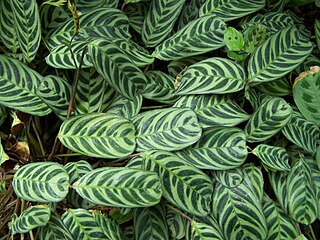
Ctenanthe is a genus of flowering plants of the family Marantaceae described as a genus in 1884. They are evergreen perennials, native to Central and South America. They are grown for their attractive, often variegated foliage. They are frost tender, requiring a minimum temperature of 13 °C (55 °F).
Austrocritonia is a genus of flowering plants in the family Asteraceae.
Trichogoniopsis is a genus of Brazilian plants in the tribe Eupatorieae within the family Asteraceae.
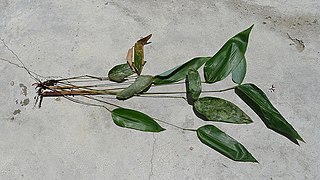
Sucrea is a genus of Brazilian plants in the grass family.
- Sucrea maculataSoderstr. - Rio de Janeiro, Espírito Santo
- Sucrea monophyllaSoderstr. - Bahia
- †Sucrea sampaiana(Hitchc.) Soderstr. - Espírito Santo†
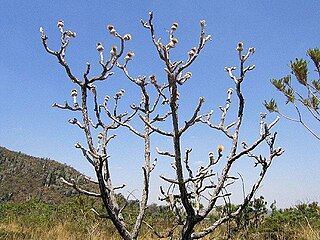
Wunderlichia is a genus of Brazilian trees in the family Asteraceae.
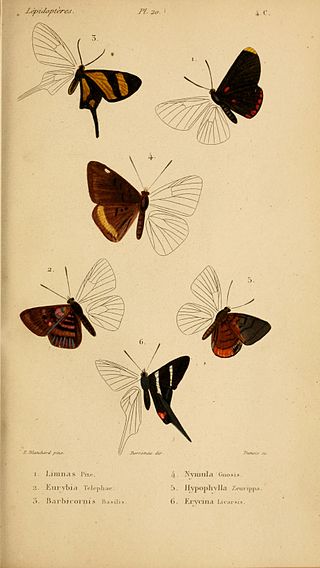
Barbicornis is a monotypic butterfly genus of the family Riodinidae with its single species Barbicornis basilis present in Paraguay, Brazil and Argentina.

Peplonia is a group of plants in the family Apocynaceae first described as a genus in 1844. The entire genus is endemic to Brazil.
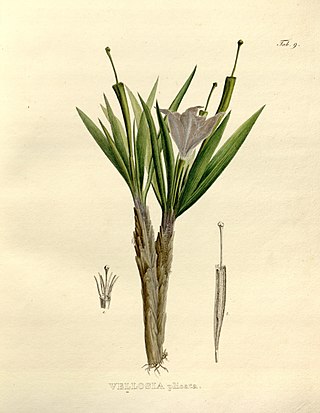
Nanuza is a plant genus in the family Velloziaceae, described as a genus in 1976. The entire genus is endemic to Brazil.
Eremitis is a genus of bamboo plants in the grass family, that is endemic to Brazil.
















